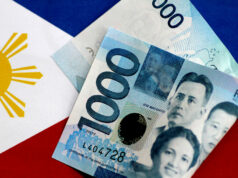Banks execute first trades under peso-renminbi spot facility
MEMBER BANKS of the peso-renminbi spot trading facility have executed their first batches of trade following its establishment last month.
In a statement, the Bank of China said it has rolled out the first batches of peso-renminbi exchange on Tuesday alongside Asia United Bank Corp.(AUB), BDO Unibank, Inc., EastWest Banking Corp., Metropolitan Bank & Trust Co. (Metrobank) and Rizal Commercial Banking Corp. (RCBC).
“This marks a big day in our community’s history, as the trades symbolize the beginning of a growing RMB (renminbi) market in the Philippines,” RMB Trading Community Chairman Deng Jun was quoted as saying in the statement.
“The Philippine RMB Trading Community aims at promoting the [peso-yuan] market, and creating an end-to-end platform for the convenient and cost-effective conversion between pesos and RMB,” added Mr. Deng, who is also the country head of Bank of China.
Bank of China led the signing of an agreement with banks operating in the country to create the Philippine RMB Trading Community last Oct. 30.
The local lenders were AUB, Bank of Commerce, BDO, Bank of the Philippine Islands, China Banking Corp., East West Bank, Metrobank, Philippine Bank of Communications, Philippine National Bank, Philippine Business Bank, RCBC, Sterling Bank of Asia, Security Bank Corp. and UnionBank of the Philippines.
With the peso-yuan exchange facility, companies and individuals trading with Chinese counterparts can directly convert payments and remittances to the renminbi in big volumes, doing away with passing through the US dollar.
Bangko Sentral ng Pilipinas Deputy Governor Chuchi G. Fonacier said the spot market will “definitely” ease volatility in the peso-dollar market because there will be an alternative currency.
The organization of the trading community is part of a three-stage Development Plan of Bank of China and Philippine Dealing System Holdings Corp. to develop the domestic renminbi services in the country.
The Philippines and China have grown closer under this administration. Yesterday, Chinese President Xi Jinping concluded his two-day state visit to Manila where the two countries signed at least 29 bilateral agreements. — K.A.N. Vidal



